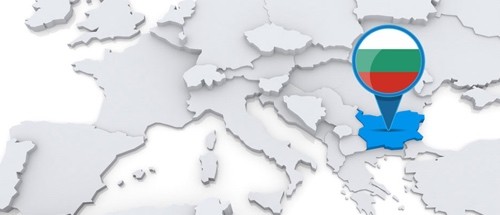Several weeks before the parliamentary elections, leading institutes and international organizations presented their forecasts for Bulgaria in 2021 and the next few years, containing – at best – very low expectations for any serious reforms and the fight against corruption.
The IMF, the OECD, the Economist Intelligence Unit and the large marketing group IHS described the country’s macroeconomic indicators in the first year of the pandemic, the government’s fiscal stimulus and benefits such as a stable currency, restrained fiscal policy and free trade.
But some have warned that some measures popular with those in power – especially public sector wage increases and pensions, as well as public procurement procedures – will then need a complete overhaul.
Here are some of the highlights placed in publications from the beginning of February of these institutes and institutions:
According to Economist Intelligence Unit the economic recovery will be slower, the European Commission’s monitoring of corruption and the rule of law will be maintained at least until 2022 (and this is related to the Schengen accession). Thus, entry into the eurozone is unlikely to happen before 2026.
According to International Monetary Fund income inequality has increased over the last 10 years.
Developing income growth that is strong and inclusive in society will require improved functioning of the labor market, education and governance.
In the medium term, structural reforms are also important for achieving the incomes of the EU’s more advanced partners.
Publication by IHS Markit group, predicts that the government is likely to take some anti-corruption initiatives on the eve of the April 4th elections to quell ongoing anti-government protests and support the declared will for Bulgaria to join the OECD.
IHS Markit group, which analyzes and forecasts developments of individual economies for thousands of private clients around the world, predicts that if protests intensify, confidence in the government may decline further and if GERB fails to lead the next government, the likelihood of a revision of contracts and the cessation of criticized tenders, especially in transport, construction, tourism and energy, will increase.
However significant progress in the fight against corruption in 2021 is not expected, because the next government will give priority to economic recovery.
If efforts to join the OECD continue, they could have the effect of EU membership negotiations and improve the country’s procurement procedures.
In EIU’s forecast for this is written that Bulgarian economy will return to growth of around 3.7% of GDP, with the stipulation of great uncertainty over the pandemic.
Gradual vaccination will help increase business and investor confidence, but not earlier than the middle of the year.
Then, in the period 2022-2025, growth will average 3% of GDP – “relatively slow” due to declining population, weak productivity growth (and rising wages), barriers to investment due to weak infrastructure and institutional environment.
Inflation – a key admission requirement in the eurozone – will average 2.4% over the next two years and 2.6% over the period 2023-2025, according to The Economist Intelligence Unit. The reason will be the economic recovery and the expected growth of global oil prices in 2021-2023.
But if the EIU’s forecast comes true, it also means that by the middle of the decade, Bulgaria will not reach the European Central Bank’s target level of “inflation below, but close to, 2%”.
The IMF, which has appointed a new head of the mission for Bulgaria, Jean-François Dauphin reminds that there must be a fight against corruption, improving the business climate and governance.
The key to the country’s transition to a greener and digital economy is to have a greater institutional capacity to absorb EU funds.
The state also needs to collect its revenues better and manage public expenditures more effectively.
Years separate Bulgaria from full membership in the Organization for Economic Co-operation and Development (OECD), stated Alvaro Pereira – Country’s Studies Director in the organisation’s Economics Department.
The government’s application for membership in this club of the richest economies is considered, but it has been known for some time that there is no consensus between members on it.
According to him, Bulgaria must fight bureaucracy and greater regulation, and recommendations will be made regarding the implementation of the laws in the coming months.
“Corruption affects all levels and reforms in this direction must continue. We will monitor this for the next few years,” Pereira said.
Alvaro Pereira from the OECD reiterates what other organizations have said – challenges in education and health due

